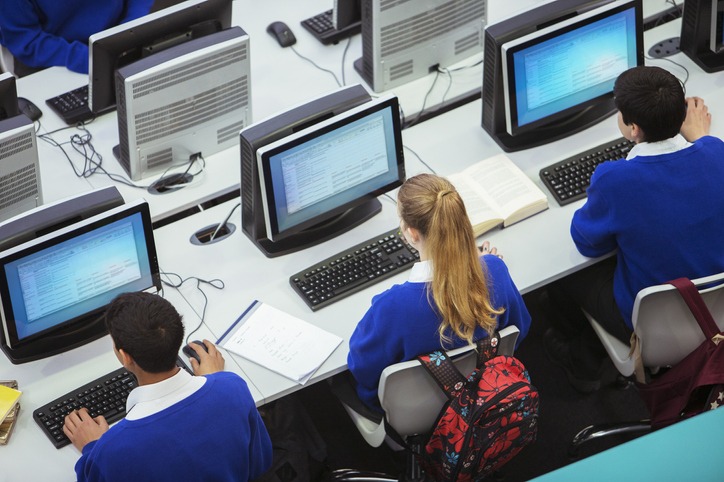
As reported by UK Parliament, a cross-party Committee will investigate the effects of screen time, internet access, and technology on children’s education and mental health, while seeking solutions to safeguard their well-being in the digital age
As well as hearing the latest research on the risks and benefits of children’s exposure to screen time, the cross-party Committee will examine the current practices used by schools, and guidance offered to families, about how to manage children’s use of online resources and social media. The inquiry’s full terms of reference are included below.
Research by the media and communications regulator Ofcom in 2021 found that 99% of households with children have access to the internet and that by the age of eight, a child will typically spend 2 hours and 45 minutes online per day. It rises to over four hours by age 11-12, while a child is still in primary school.
A 2020 report from Ofcom found that 57% of five to seven-year-olds have their own tablet, 14% have their own smartphone and 30% use social media sites. Among 12 to 15-year-olds, 91% have their own smartphone; 59% have their own tablet; and 87% use social media apps/sites. Furthermore, 31% of that age group said they had seen worrying or nasty content online, and 5% said they had encountered material online promoting terrorism or radicalisation.
This inquiry comes after the Committee received evidence during a previous hearing on child exploitation and county lines that social media platforms have been used by criminal gangs as a tool for grooming children. It also follows research by the Children’s Commissioner for England which found that the average at which children first see pornography is 13, and that significant numbers of boys and girls aged 16-21 had sought out online pornography.
Education Committee Chair, Robin Walker MP said:
“Over the last decade, teenagers’ access to the internet has become almost ubiquitous, and it is becoming ever more prevalent among young children. Whilst learning how to safely navigate the online world is an important skill, the Committee has already heard some deeply concerning evidence about the risks to children of too much screen time or of unsupervised access to online platforms.
“The use of technology has contributed to huge advances in helping children with communication and accessing information, not least in how technology enabled remote learning during covid-19 lockdowns. But there are concerns too about the content children can experience online, the risks posed by online grooming and how too much screen time can affect their personal and school lives.
“From this inquiry, we hope to form positive recommendations for both the government and the education sector on how to harness the benefits that online resources can offer for children’s education and development. It will also explore the potential ways that screen time can impact children’s mental health and wellbeing, and ways that this can be mitigated against through education in school and safeguarding practices.”
The Committee welcomes written evidence submissions from academics, experts and those who work in children’s health, education and consumer technology. Submissions should respond to the following terms of reference and should be made via the Committee’s website by 16 October 2023.
- What is the current understanding of how screen time can support and impact children’s development and educational outcomes, including the effect on concentration and behaviour?
- What is the current understanding of how screen time can support or impact children’s well-being and mental health, including the use of social media?
- How effective is digital safety education in schools, for example, the PHSE curriculum, in educating children about screen time and online harms?
- How can schools and parents be better supported to manage children’s screen usage, for example, through age-related guidance? Could the Department for Education be doing more in this area?
- What policies and practices are schools developing to manage children’s recreational screen usage, particularly mobile phones?
- How is screen use as an academic tool being managed in schools, for example, in lessons or for homework?
- To what extent are schools reliant on external sources, such as the use of Google for education and classroom activities?



Be the first to comment